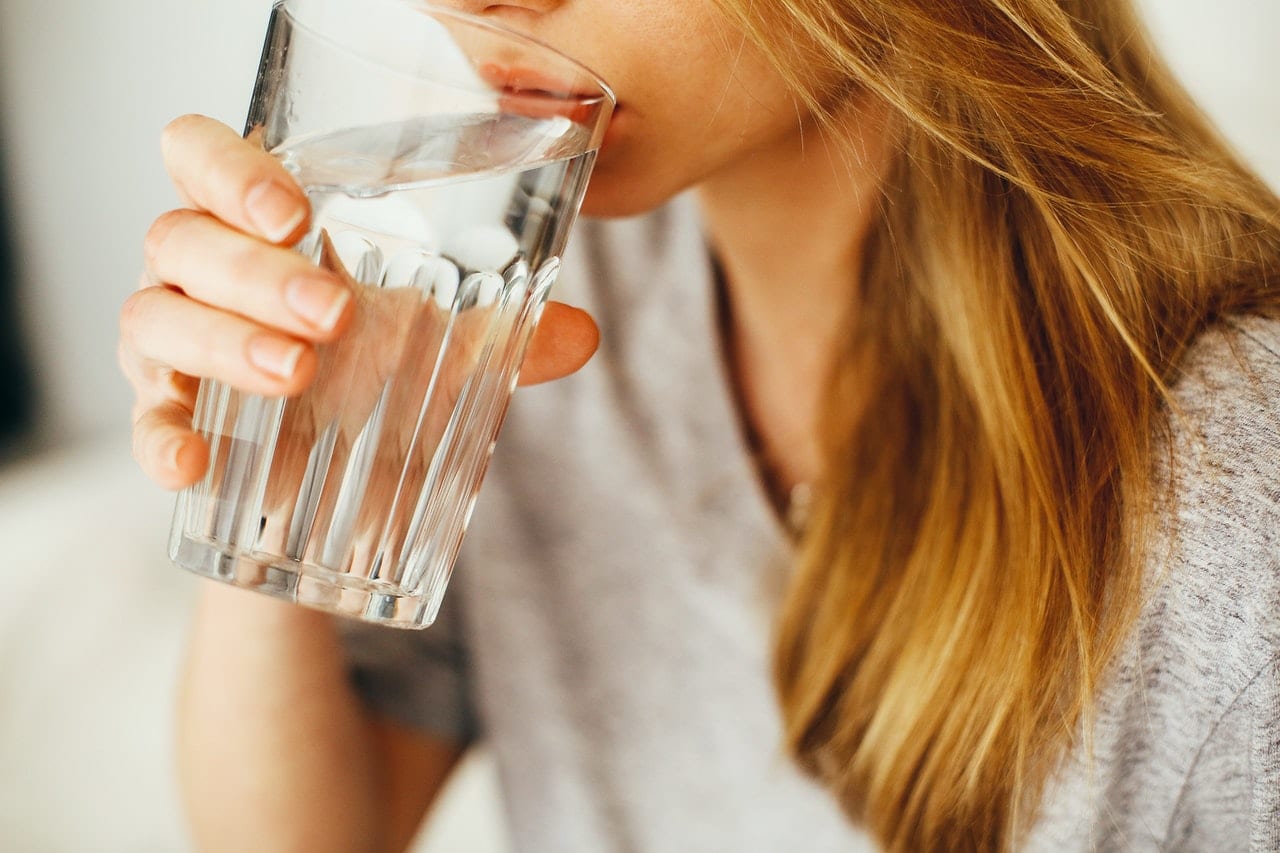Does salt-water kill corona-virus? This is just one of many online fables circulating after the world has battled for months against the spread of the novel coronavirus or COVID-19.
There have even been some myths about corona-virus in water, which has prompted people to ask “can a virus live in water?” The corona-virus has surely created a wild menagerie of fables and urban legends, and we should be careful about entertaining these ideas because they’re often not true, and they can even be dangerous to your health.
Is it correct to drinking water that can flush out the virus?
One of the newer fables that have cropped up recently is that you can drink water to protect yourself from COVID-19.
The story goes that water can keep our throats moist, and it can be used to flush away the virus. If the virus attaches itself to the throat, then water can remove it.
The stomach acids will take care of the virus and poof – you are safe from COVID-19. If only things were this simple, then the battle against the pandemic would be much easier for everyone. According to Dr. Kalpana Sabapathy, a clinical epidemiologist from the London School of Hygiene and Tropical Medicine, the idea is so simple that she couldn’t even wrap her head around it. And she says this for a good reason: this is not how COVID-19 spreads, primarily, anyway.
COVID-19 is primarily a respiratory disease, like SARS, and researchers are still discovering other facets of this disease as of late. What we do know is that COVID-19, unlike other coronaviruses, has a gastrointestinal feature that is expressed as diarrhea and gastrointestinal unrest later on as the body battles the pathogen.
Information is often mixed up on the Internet, and the fact that people with COVID-19 have to battle diarrhea, too, while battling this coronavirus may have sent a mixed signal to people that drinking water may kill the virus. We know it is not rational, but that is the thing with urban legends, they don’t have to make sense, and they are not meant to be rational anyway.
The reality of COVID-19 is that we have to be wary mainly of respiratory droplets. A single cough or sneeze can result in the ejection of up to 3,000 droplets, and there can be millions of viral particles trapped in those 3,000 droplets.
We don’t see the droplets, but they spread and stick to physical surfaces – skin, hair, clothes, and stuff around us like doorknobs, door handles, walls, etc. It has also been discovered that smaller respiratory particles can linger in the air (in contrast with earlier reports that the particles are too heavy to be suspended in the air). Recent scientific investigations have also shown that a COVID-19 patient in the toilet can also shed viral particles after defecating.
We just don’t know right now how long these viral particles can stay alive in toilet-related surfaces. So it is best to say that if you are using public toilets, you need to wash your hands thoroughly to keep safe from the virus.
Viruses are lightweight, and they are designed by nature to stick to surfaces so they could propagate themselves. That is just how they are designed, so it would be up to people to take steps to protect themselves from being infected. Other coronaviruses such as SARS and MERS can linger on physical surfaces for as long as nine days.
If no disinfection is done and if the temperatures are generally low, some even say that SARS and MERS viruses can stay alive outside a human body for as long as 28 days. If COVID-19 is anything like SARS and MERS, then it is safe to say that everyone needs to practice frequent hand-washing from now on, if they want to be safe from this disease.
Coronaviruses, in general, tend to be resilient outside the human body, and they have high survival rates, which makes them doubly dangerous as human pathogens, especially now that there is still no vaccine or clear cure for COVID-19.
What are the proper methods to fight against the virus from our bodies?
While studies are still being conducted on COVID-19, we should be wary of random reports that any kind of food or vitamin can help fight it. However, we can trust scientists when they suggest that particular supplements can boost the immune system in general terms.
One such study was published recently in the peer-reviewed journal Nutrients, and the researchers suggested that there is some evidence that vitamin D supplementation can reduce the risk of influenza and COVID-19. According to the study, vitamin D supports several mechanisms in the body that ultimately reduces the risk of infection.
Vitamin D is said to reduce the concentrations of pro-inflammatory cytokines that lead to the damaging of the lining of the lungs. Several other clinical trials have also shown that vitamin D can reduce the onset of influenza.
The study further recommends the intake of 10,000 IIU/d of vitamin D3 for several weeks to raise the 25(OH)D concentrations in the body. The dosage can then be lowered to 5000 IU/d. The study also indicates that supplementation of vitamin D3 may help people who are recovering from COVID-19.
To keep yourself safe from community transmission, practice social distancing (don’t get too close to other people) and practice frequent hand-washing and using sanitizers. The US EPA recommends several sanitizers and disinfectants for daily use. 70% rubbing alcohol is recommended for daily use, as well as hydrogen peroxide.
Bleach is suggested for regular disinfection of surfaces like doorknobs and other surfaces that people regularly touch daily. And of course, let us just ignore myths that you can drink bleach to ward off the coronavirus, these are fake news, and you will be in harm’s way if you drink any kind of disinfectant.

